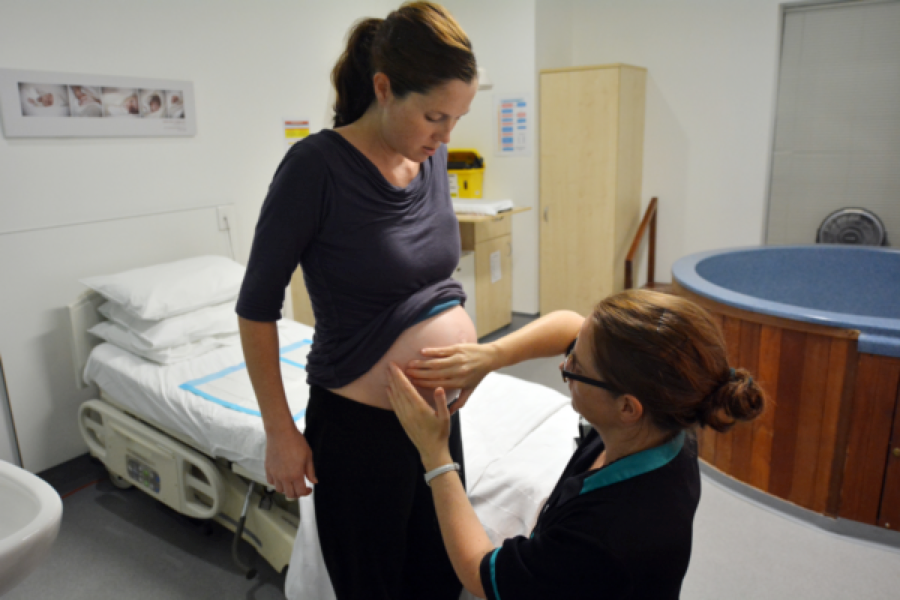
CLINICAL PRACTICE
Holistic Approaches to Women's Health: The Philosophy of Certified Nurse Midwives
-
 EveryNurse Staff
EveryNurse Staff
- Last Updated: 05/22/2023

Women’s health is a critical component of overall well-being, and it encompasses a broad spectrum of physical, emotional, and spiritual needs. For many years, healthcare providers have focused primarily on treating women’s physical symptoms and ailments, while neglecting the crucial connection between mind, body, and spirit. However, healthcare delivery is changing, and increasingly, women are seeking out holistic approaches to address their health concerns.
In this article, we explore the philosophy of certified nurse midwives and their role in the advancement of holistic approaches to women’s health. We begin by defining holistic health and explaining why women’s health needs a holistic approach. Next, we delve into the scope of practice and the philosophy of care in midwifery.
Finally, we discuss some of the holistic practices used by certified nurse midwives in prenatal and postnatal care.
Understanding Holistic Health and Its Importance for Women
Defining Holistic Health
Holistic health refers to an approach to healthcare that considers the whole person, not just their physical symptoms or illness. In this approach, healthcare providers understand that many factors come into play when addressing a patient’s health concerns, including their emotional, mental, and spiritual well-being. Holistic health recognizes that the body can heal itself, provided the right conditions and resources are available.
For example, if a woman is experiencing chronic pain, a holistic approach would involve looking at her diet, exercise routine, stress levels, and emotional state, in addition to addressing the physical symptoms. By taking a comprehensive approach, healthcare providers can help women achieve better health outcomes and improve their overall well-being.
The Connection Between Mind, Body, and Spirit
Many healthcare providers now believe that the mind, body, and spirit are interconnected, and that addressing one aspect of a person’s health can have a positive or negative impact on the other areas. For example, if a woman is experiencing a stressful situation at work, this stress can manifest in physical symptoms, such as headaches or digestive problems. Holistic health recognizes that treating the underlying stress and addressing the root cause of the problem can lead to better health outcomes overall.
Moreover, a holistic approach to women’s health recognizes that women’s bodies undergo significant changes throughout their lives. For example, during pregnancy, a woman’s body undergoes immense changes to support the growth and development of a new life. A holistic approach to pregnancy would involve not just monitoring the physical health of the mother and baby, but also addressing the emotional and mental well-being of the mother, as well as preparing her for the changes that lie ahead.
Why Women's Health Needs a Holistic Approach
Women face a unique set of health challenges that can be difficult to address using a traditional, symptom-based approach to healthcare. Women’s health needs often involve multiple systems of the body, complex hormonal interactions, and significant life changes, such as pregnancy and menopause. To provide optimal care to women, healthcare providers must use a more comprehensive approach that addresses all aspects of their well-being.
For example, women who experience menopause may face a range of physical and emotional symptoms, such as hot flashes, mood swings, and sleep disturbances. A holistic approach to menopause would involve not just addressing these symptoms, but also providing support and resources to help women manage the emotional and mental changes that come with this life stage. By taking a holistic approach to women’s health, healthcare providers can help women achieve optimal health outcomes and improve their quality of life.
The Role of Certified Nurse Midwives in Women's Health
The History and Evolution of Midwifery
Midwifery is a profession that dates back centuries, and midwives have supported women throughout history, providing care during childbirth and beyond. In the early 20th century, the rise of modern obstetrics led to a decline in midwifery services as childbirth became more medicalized. However, in recent years, there has been a resurgence of interest in midwifery as women seek out alternative approaches to childbirth and primary healthcare.
The Scope of Practice for Certified Nurse Midwives
Certified nurse midwives (CNMs) are licensed healthcare providers who are trained to provide a broad range of services related to women’s health. In addition to childbirth, CNMs provide prenatal and postnatal care, family planning, gynecological care, and menopause management. They work in hospitals, clinics, and private practices, and they collaborate with other healthcare providers to ensure comprehensive care for their patients.
How Certified Nurse Midwives Differ from Traditional Medical Providers
One of the key differences between CNMs and traditional medical providers is their approach to care. CNMs focus on providing client-centered care, which emphasizes the empowerment of women to make informed decisions about their health and well-being.
They also use a holistic approach to care, which considers the whole person, including their emotional and psychological needs. Finally, they emphasize continuity of care, which means that they strive to build long-term relationships with their clients, providing support throughout their lifespan.
The Philosophy of Care in Midwifery
The Midwifery Model of Care
The midwifery model of care is based on a set of guiding principles that emphasize the normalcy of birth and the role of the midwife in supporting this natural process. These principles include monitoring the physical, psychological, and social well-being of the mother, providing education and counseling to promote health and prevent complications, working collaboratively with other healthcare providers, and providing individualized care. The midwifery model of care recognizes that birth and women’s health are normal life events, not medical emergencies or conditions to be treated.
Empowering Women Through Informed Decision-Making
One of the key tenets of midwifery is the empowerment of women to make informed decisions about their health and well-being. This means providing women with the information and resources they need to make decisions about their care and supporting their choices, even if those choices differ from the recommendations of healthcare providers.
Midwives view women as partners in their care, rather than passive recipients. By empowering women to make informed decisions, midwives can improve outcomes and foster a sense of trust and mutual respect.
The Importance of Continuity of Care
Continuity of care refers to the concept of ensuring that a woman receives care from the same healthcare provider or team of providers throughout her pregnancy, childbirth, and postpartum period. This approach recognizes the value of building relationships between healthcare providers and their clients and the importance of ensuring consistency and clarity in the provision of care. Research has shown that continuity of care can improve health outcomes, increase patient satisfaction, and reduce healthcare costs.
















